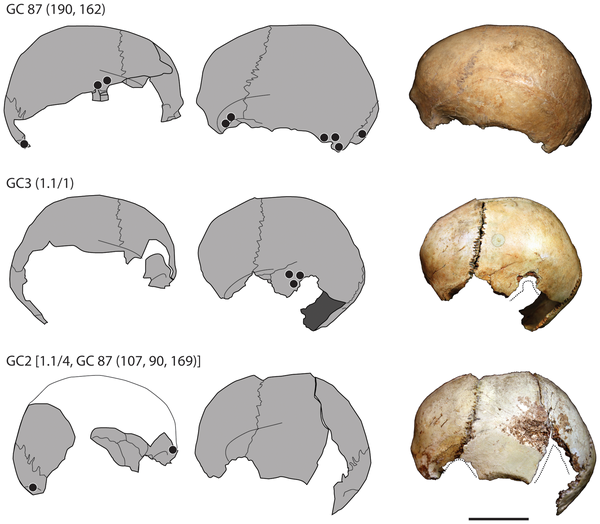Our prayers to those in harm’s way: To the earthquake and tsunami victims in Japan, and earlier in Christchurch, our prayers and best wishes.
Here are things that caught my eye this week:
[1] Congratulations, Emily! Dr. Emily Deans is now writing for Psychology Today. It’s great that a wide audience will now be hearing her helpful ideas – for instance, that magnesium may be the healthiest antidepressant.
P.S. – Kurt Harris will be there too!
[2] Secrets to longevity: Longevity project authors say that careful, conscientious people live longer than optimists; hard-working people live the longest; worrying is OK; good marriages extend lifespan, difficult marriages don’t; starting school at a very young age shortens lifespan (that’s bad news for Shou-Ching, she started school early to be with her older brother). Their advice: make a lot of friends, and be active doing things you enjoy.
[3] What’s He up to now?: When commenters leave blog addresses I visit their blogs. Mary of Midlife Makeover Year made me smile with this:

Love this picture of Mary … keeping an eye on her Son who is probably messing up the spice rack again.
[4] Self-Recommending Paper: With Staffan Lindeberg, Loren Cordain, Pedro Bastos, and other leading Paleo figures in the author list, “The western diet and lifestyle and diseases of civilization” is bound to be good. Download here.
[5] Nice to hear: Our Ox Feet and Seaweed Soup is “Absolutely fantastic!”
[6] A new difference between chimps and humans: Penile spines. John Hawks explains that chimpanzees have pointy cactus-like penises while Neandertals and humans don’t. Scientists are wondering when and why our ancestors lost these prickly appendages. The loss makes sex far more enjoyable.
I’m glad I’m human!
[7] Animal photo for no reason whatsoever: Via Yves Smith

[8] Are smokers more creative?: Bruce Charlton wonders if smoking improves mental function.
[9] Don’t eat cardboard: Barry Groves says cardboard breakfast cereal boxes are no longer healthier than the cereals they contain. Sadly, not because the cereals got better.
[10] Don Rumsfeld works at a standing desk, Piers Morgan thinks it’s odd: There are few single life adjustments more likely to improve your health than working at a standing desk. I’ll blog about why after I finish building mine. Don Rumsfeld looks great for 78, and his standing desk probably has something to do with it. Here’s Piers Morgan trying to make it sound weird:
I wonder what would have happened if Rummy had worn his Vibrams!
[11] Cure worse than the disease syndrome: In Science Daily, some excited scientists proclaim a new cure for obesity:
An important discovery in mice may make a big difference in people’s waistlines thanks to a team of Harvard scientists who found that reducing the function of a transmembrane protein, called Klotho, in obese mice with high blood sugar levels produced lean mice with reduced blood sugar levels. This protein also exists in humans, suggesting that selectively targeting Klotho could lead to a new class of drugs to reduce obesity and possibly Type 2 diabetes for people….
“Our study is a small step toward reducing the sufferings of obese and diabetic individuals to bring back the joy of healthy life,” said M. Shawkat Razzaque, M.D., Ph.D., a researcher involved in the work from the Department of Oral Medicine, Infection and Immunity at Harvard School of Dental Medicine in Boston. “In the dark horizon of obesity and diabetes, Klotho brings a ray of hope.”
I happen to have a passing familiarity with Klotho; it is discussed in this paper which was cited in my post The Amazing Curative Powers of High-Dose Vitamin D in Aging and Autism. Klotho knockout mice experience accelerated aging and die young. Another paper summarizes, “Klotho hypomorphic mice (klotho(hm)) suffer from severe growth deficit, rapid aging, and early death.” From a Nature article, here’s a picture of a normal mouse and a Klotho deficient mouse. Can you guess which mouse had its obesity cured?

Of course, rapid aging and early death is a problem for the longevity researcher, not the obesity researcher. If Klotho blocking cures obesity, the obesity researcher’s job is done, and it’s up to longevity researchers to find a drug that extends the life of anti-Klotho-drug-consuming humans.
[12] 88% of Bavarian doctors have prescribed placebos: Guardian story here. The study (in German) is here. Hat tip: Tyler Cowen.
I suspect that if US doctors could follow their own clinical judgment without fear of lawsuit or clinical review or patient complaints, placebos might make up a majority of prescriptions. And health might improve! Not because the patients are psychosomatic, either.
[13] Jamie Scott, “That Paleo Guy,” is eloquent about constipation.
[14] Fallon, Nevada, provides evidence for an infectious origin of leukemia.
[15] Weekly Video: The rhythms of traditional life (via Fanatic Cook)
















Recent Comments